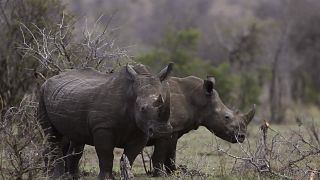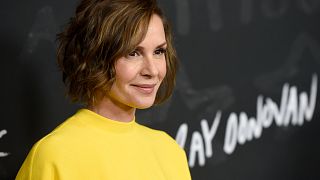South Africa
60 million South Africans without power for months and up to 12 hours a day are waiting for President Cyril Ramaphosa to address the country's energy crisis during his annual state of the nation address on Thursday.
The ceremony is usually conducted with great pomp and circumstance at Parliament: red carpet, fancy suits and designer dresses, and photographers. Then the presidential guard is paraded and 21 cannons are fired to greet the arrival of the head of state.
However, the historic building in Cape Town having been partly ravaged by an arson attack last year, the president will speak in the evening from the Town Hall.
And in an economic and social context at half-mast, calls for sobriety for the reception billed at more than 424,000 euros (8 million rand) have spread on social networks, "as a sign of solidarity with the real state of the nation.
In South Africa plagued by one of the highest unemployment rates on the planet (32.9%), a GDP growth forecast for the year of almost zero (0.3%) and families crushed by the constant rise in the price of basic commodities, anger at the power shortages have spread to the streets.
In recent weeks, demonstrations have broken out in several cities, including Johannesburg, at the call of the opposition and the unions.
- Mismanagement and corruption -
Since last year, the energy crisis has worsened in the continent's leading industrial power, which is lagging behind in the transition to clean energy.
State-owned Eskom, plagued by years of mismanagement and endemic corruption under President Jacob Zuma (2009-2018), is unable to produce enough electricity from its ageing coal-fired power plants, which are regularly hit by blackouts.
The only remedy, for now, is scheduled load shedding several times a day, forcing the entire country to cook, wash its clothes and charge its phone at certain times only.
Businesses are losing hundreds of millions of dollars a day, according to the main opposition Democratic Alliance (DA), which is criticizing the government's ineffectiveness in resolving the crisis.
The ruling African National Congress (ANC) announced last week that it had given "clear instructions" and called on the government to declare a state of disaster in order to release funds.
But according to Dieter von Fintel, an economist at the University of Stellenbosch, this purely "symbolic" measure would only have the virtue of calming down an opinion that is already losing confidence, since the real problem lies in the fact that "the energy crisis is short-circuiting any attempt to revive the economy and is now a threat to social stability.
The radical left-wing EFF (Economic Freedom Fighters) party has vowed to disrupt the speech of the "delinquent" president. Mired in a scandal with a whiff of dirty money, Cyril Ramaphosa escaped impeachment proceedings in December, supported by the ANC. A police investigation is still underway.
The historic party subsequently re-elected him as its leader, assuring the still-popular 70-year-old president, who remains its best asset, of a second term if the ANC wins the 2024 general election.











01:04
South Africa: ANC partner quits key govt initiative as new spat hits coalition
01:37
South Africa calls for peaceful resolution to Israel-Iran conflict
01:29
Ramaphosa concludes G7 summit visit, no meeting with Trump
00:48
Cyril Ramaphosa arrives in Canada for G7 summit
01:55
South African president visits flood sites with death toll at 78
Go to video
Nigeria: Tinubu denies one-party plan after he's accused of clamping down on opposition